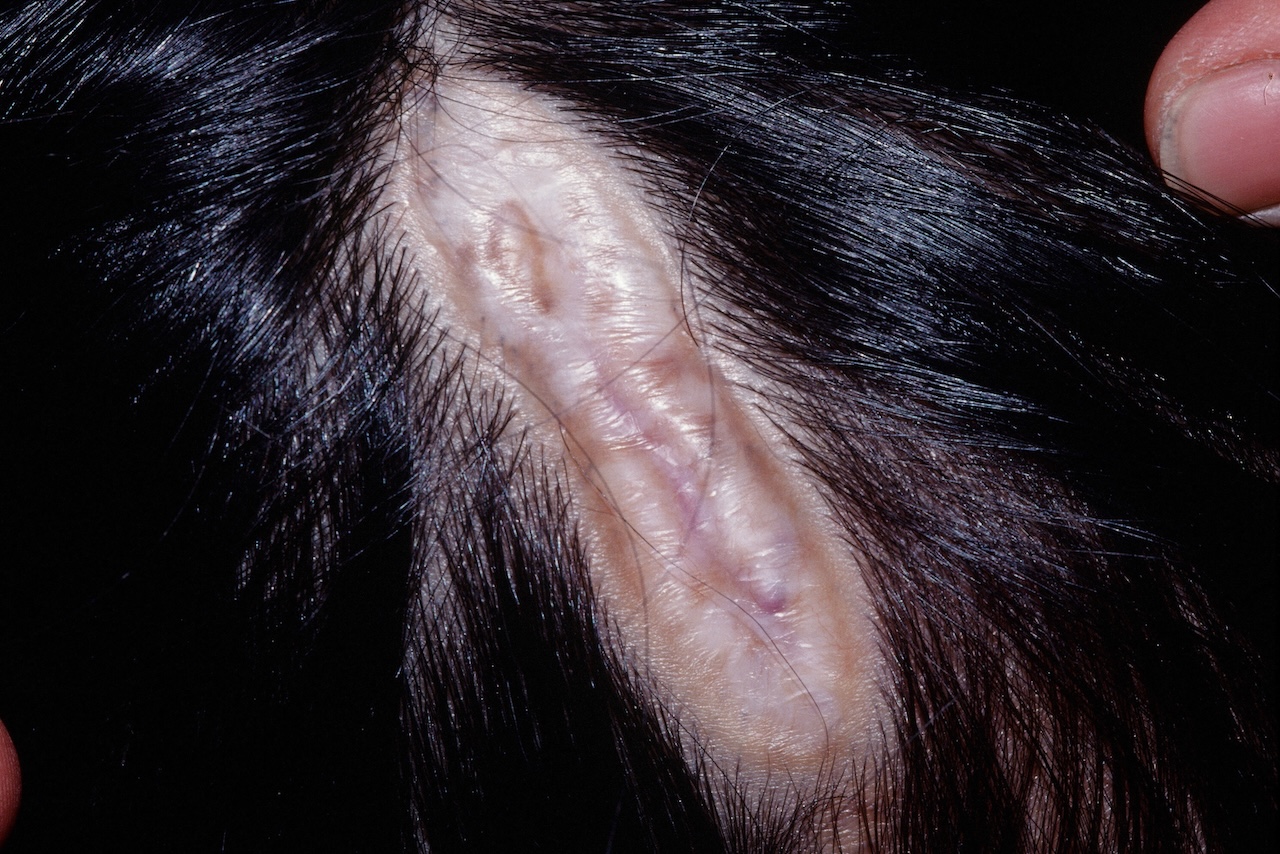
This, from birth.
APLASIA CUTIS CONGENITA
Aplasia cutis congenita (ACC) represents an absence of skin in utero. The scalp is most commonly affected. Often, the area has healed by delivery.
- Most cases of aplasia cutis congenita are unassociated with other conditions, but the following are rarely associated: trisomies (e.g., 10, 13); underlying skull defects and distal limb abnormalities (e.g. Adams-Oliver Syndrome); epidermolysis bullosa.
- Maternal exposure to methimazole has been reported to be associated with ACC in at least 19 cases, without a characteristic associated pattern.
- Histologic examination of the bullous variant shows the same picture as that found in meningoceles and encephaloceles, supporting the idea that bullous aplasia cutis may represent the forme fruste of a neural tube closure defect.
Clinical
A congenital, well circumscribed area of alopecia of the scalp is most common. The skin is often atrophic ("membranous"). If a dense amount of hair is present at the periphery (hair collar sign), the possibility of an underlying meningocele or heterotopic brain tissue should be considered. In severe cases, the child may present with extensive scalp ulceration. Purse-string bunching of the skin around the ulcer may occur [Indian Dermatol Online J 2014;5:103-4].
RegionalDerm
Who is Dr. White? | Privacy Policy | FAQs | Use of Images | Contact Dr. White
It is not the intention of RegionalDerm.com to provide specific medical advice, diagnosis or treatment. RegionalDerm.com only intends to provide users with information regarding various medical conditions for educational purposes and will not provide specific medical advice. Information on RegionalDerm.com is not intended as a substitute for seeking medical treatment and you should always seek the advice of a qualified healthcare provider for diagnosis and for answers to your individual questions. Information contained on RegionalDerm.com should never cause you to disregard professional medical advice or delay seeking treatment. If you live in the United States and believe you are having a medical emergency call 911 immediately.
